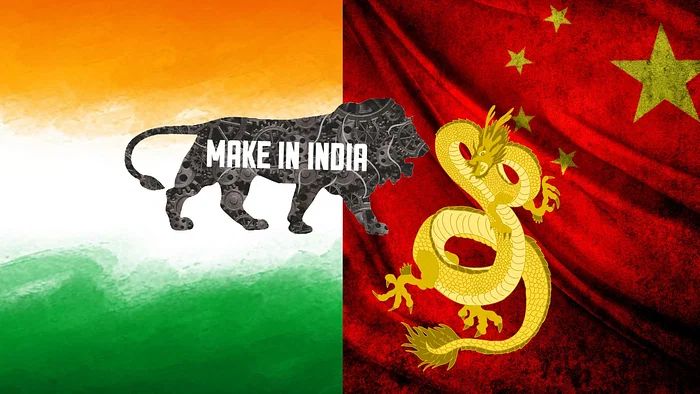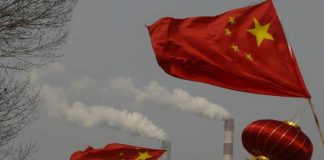https://www.freepressjournal.in/business/indo-china-expert-explains-why-bilateral-trade-rises-despite-border-issues
Indo-China expert explains why bilateral trade rises despite border issues
The trade between the two countries continued to boom despite border tensions following the military standoff in eastern Ladakh in May 2020.
India’s exports to China increased by 34.28 percent year on year to reach $28.03 billion in 2021. The trade between the two countries continued to boom despite border tensions following the military standoff in eastern Ladakh in May 2020.
Sunil Apte who has worked very closely with Chinese companies talks about his perceptions and experiences. He has over 45 years of experience in the field while making significant contributions to Business & Corporate Affairs, Government Relations, Facility Management, Public & Industrial Relations and Statutory Compliances. He has the ability to quickly develop a strong local network of contacts in Business, Political, Bureaucratic, Legal and police circles with a sense of commitment and right attitude.
In conversation with Dominic Rebello and RN Bhaskar (both from the Free Press Journal) he talks about how having a collaborative approach with industry, business, trade, and social economic relations will go a long way in improving relationships between nations.
 Sunil Apte |
Sunil Apte |
What does your company do?
Currently, I’m not associated with any Chinese company as such. But I was one of the first employees of a company called Foton Motors.
I retired from Foton in 2018 and then I consulted with them for about three years, until October of 2021. And then I helped another Chinese company called Lesso Buildtech Pvt. Ltd.
But while with Foton, I had a lot of interactions at a diplomatic level on both sides, because Foton was a state-owned enterprise. I enjoyed trust from both sides — the government of Maharashtra and the Beijing government.
There’s a little bit of thawing in relationships now between India and China, partly because of geopolitical reasons. What is the potential you see between India and China?
I see huge potential in terms of trade and industry. I experienced this because I had helped them to set up a manufacturing unit in Maharashtra. At that time, the Indian government probably thought that [manufacture in India] would help correct the balance of trade. But the Chinese cannot manufacture in India; they need to have some good, trustworthy partners. And that is where I do consulting even today. I tell them that you don’t come and set up your factories, you invest money here, trust people here. Let Indians manage the manufacturing. Chinese cannot come here and manage manufacturing. It won’t be sustainable.
Today, if you were supposed to put a ballpark figure on the import-export business that India and China have. What do you think the potential could be?
The potential could be more than $500 billion.
There is the belief that India has a trade deficit with China. But isn’t it true that most of the imports are raw materials, which India uses for exports. Its own exports would not have taken place if the imports had not come in. This is true of chemicals, the same goes for the pharma sector. What is your view?
Yes, I agree. See in a global scenario, no country can claim to be an island. Whether it is Korea or US or anybody, you have to have a collaborative approach with industry, business, trade, and social economic relations. It has to be collaborative.
So, you see the possibility of both sides beginning to understand each other better taking roots now?
Yes.
How much do you attribute this to geopolitical reasons? The need for China and India to work together has increased dramatically?
The need was always there. Ukraine is something that has happened for geopolitical reasons of Russia and Europe. But it’s more of a creation. Whenever I spoke to the Chinese one-on-one, they all believed India was a much better country to deal with as compared to the US or any other country for that matter.
At present, what kind of a role do you see yourself playing in this thawing environment between India and China?
The understanding that we have with the Chinese, about how they think, the differences – that is what I work on. On a person to person relationship or human psychology, I don’t think they are any different from us. Nor are we any different from them. In fact, we are much closer to each other as compared to the Western world.
You have many Indian students going to China for medical studies. Chinese universities are reckoned among the best in the world today. Do you see China playing a bigger role in helping India cope with education because Indian standards in education are plummeting?
I disagree there on Indian standards. We have to decide what is education. Do we see Harvard as a standard or do we see Cambridge as a standard? I don’t agree. India needed its own education system, which is what we have done, like what China has done. China has designed and crafted its education system to suit its need. In fact, they have done everything in their social sphere to suit themselves. And if India does that, there’s no harm or there’s nothing wrong about it. India should do it as a public policy.But capacity building in India is poor. For example medical schools, engineering.
What China has done is they have designed their curriculum or designed their educational system to create talent that is needed from the industry. And Indian society has somehow followed blindly the Western part. If you see an average middle-class family, they would be drilling their child to get into IT because it’s a comfortable job. In China, I’ve seen workers work hard and you ask any youngster, what is your career goal? He says I want to work hard and do something. That’s the difference.
The governments of China and India have both started coming together. On many grounds, talks have resumed. Do you see an acceleration in Chinese investments in India?
Yes, that should happen soon.
(To receive our E-paper on WhatsApp daily, please click here. To receive it on Telegram, please click here. We permit sharing of the paper’s PDF on WhatsApp and other social media platforms.)







































COMMENTS